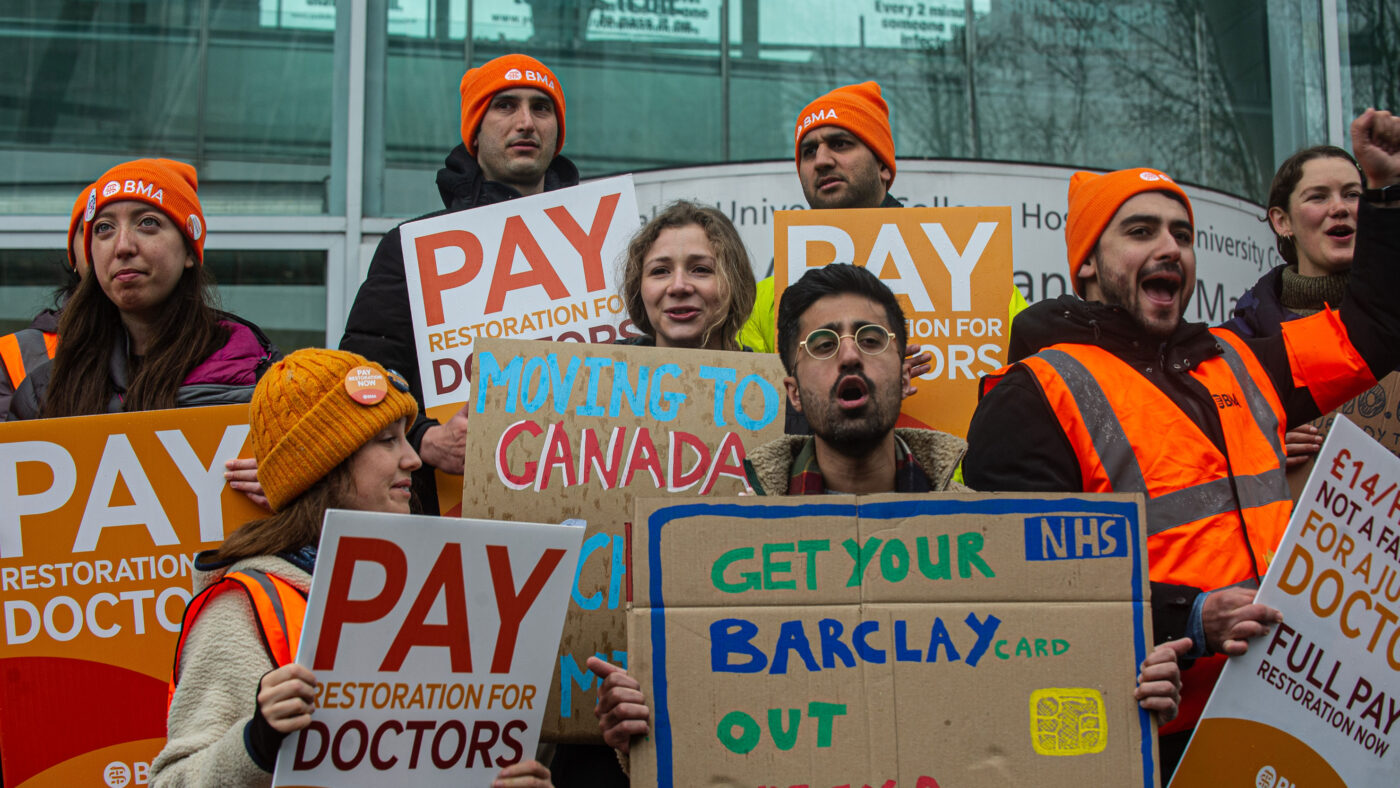Strikes used to be weapon of the poorly paid and the role of trade unions was to defend downtrodden workers being exploited by their greedy bosses.
These days, however, we have junior doctors standing on picket lines demanding a 35% pay increase which would take their starting salary to £40,000. Headteachers are also considering strike action and criminal barristers were on strike last year. Even those sympathetic to their cause will surely accept that these people are not on the breadline and during their careers will likely earn much more than most of the population.
All of this reflects the way the middle classes have been radicalised, with strikes now the weapon of choice for fairly well paid people who think taxpayers should stump up more money. The latest figures show that trade union membership is heavily concentrated among public sector workers, with about half of them in a union compared with 13% in the private sector. In education and medicine the workforce is almost entirely unionised.
Trade union members are also more likely to be graduates, 29% of those with some form of higher education are union members compared with 18% who have no qualifications. They are also relatively well off, with only 12% of union members earning less than £250 per week and nearly a third earning £500-£999 a week. It is noticeable that it is the better off who have withdrawn their labour in recent strikes, nurses and doctors, not porters and cleaners, and teachers rather than teaching assistants.
The professional classes used to be confident in their powers of persuasion and belief that, as pillars of the community, they could negotiate their way to what they wanted. The idea that a doctor or a barrister would stand on a picket line and chant ‘What do we want? When do we want it?’ would have seemed unimaginable.
There’s no denying this brand of middle class militancy has been effective though. While public sector starting salaries are moderate, once you are on the ladder the union-imposed system of national pay scales means salaries increase rapidly. In most public sector jobs, unless someone is hopelessly incompetent, they will move up the pay scale every year, adding about £1,000 a year to their salary on top of any nationally agreed pay settlement. (And that’s without mentioning the generosity of public sector pensions).
Middle and senior management are paid very generously by any standards. For example, the Devon Integrated Care system, the organisation that manages local health care, recently advertised for an Associate Director of Governance with a salary of £95-110,000 – and this is not even a top level job. The Director of Public Health in North Northamptonshire, a very small council, earns £101,000 and hospital consultants earn £88,000 to £119,000, plus anything they bring in from their private work.
And while union leaders routinely claim that workers are leaving in droves because their pay and conditions are so dreadful, the figures do not bear this out. The taxpayer-funded workforce has increased significantly over the last decade, particularly in the last two years. Overall public sector employment has grown from the full-time equivalent of 4.48 million people in 2019 to 4.9 million at the end of 2022, a 400,000 increase. The civil service alone has seen an 11% increase in numbers over the same period and the NHS a 3.7% increase. It seems clear that a public sector career remains an attractive choice for many people.
As the Government has found, this creates major problems. They end up in a collective bargaining process when the normal approach with professionals in the private sector would be for each organisation to reward individuals for what they are worth. In a sensible world hospitals would be able to pay more to get A&E doctors, but less for those conducting outpatient clinics. Schools would be able to pay teachers more if they were struggling to recruit. However, while a few Academy Trusts have used their freedoms to move away from the national pay scales, the majority cannot face the battles with the unions of developing their own approach to pay, so national agreements remain the default.
A further problem for a Conservative government is this unionisation of the middle classes seems to be part of a wider political change. Members of the Labour Party are more likely to work for the public or charity sector and in the 2019 election the Conservatives secured significantly more votes than Labour among both manual workers and households with incomes of less than £20,000.
All of this presents a serious political issue for the Government: if it wants to keep public spending under control ministers will need to work out how to deal with a well organised, active and increasingly bourgeois public sector union movement.
Click here to subscribe to our daily briefing – the best pieces from CapX and across the web.
CapX depends on the generosity of its readers. If you value what we do, please consider making a donation.


